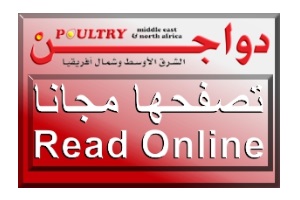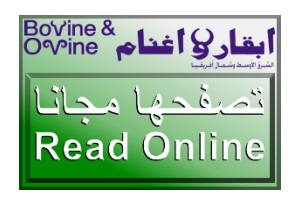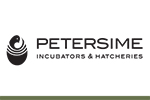 For many years, we’ve been repeating to each other “Happy New Year” as if this wish has become a routine, echoing automatically or even in a dull way, despite it possibly coming from the depths of our hearts. The recent years have darkened our future, robbed us our sleep, and led us to a state of despair to the point of disbelief in life.
For many years, we’ve been repeating to each other “Happy New Year” as if this wish has become a routine, echoing automatically or even in a dull way, despite it possibly coming from the depths of our hearts. The recent years have darkened our future, robbed us our sleep, and led us to a state of despair to the point of disbelief in life. After a long absence, here I am, back to the Kingdom of Saudi Arabia to participate in the "Middle East Poultry Exhibition," in the time when companies are crowding to showcase their latest products in the Kingdom, and investments are flowing in abundantly.
After a long absence, here I am, back to the Kingdom of Saudi Arabia to participate in the "Middle East Poultry Exhibition," in the time when companies are crowding to showcase their latest products in the Kingdom, and investments are flowing in abundantly.
The exhibition lasted for three indistinguishable days, amidst intense crowds from all over the world. On the way back home, I was thinking and reminiscing about the people we met at the exhibition and conversations we had with visitors and company representatives. We talked both: current problems and desire to, nevertheless, keep on doing our jobs and following up in the times when the world is plagued by diseases, and wars, and, obviously, economic turbulence.
 We can say that the roundtable discussions of the problems of the Arab poultry industry during “VIV MEA” exhibition in Abu Dhabi late last year was the most important event in my opinion.
We can say that the roundtable discussions of the problems of the Arab poultry industry during “VIV MEA” exhibition in Abu Dhabi late last year was the most important event in my opinion.
How could it not be? it gathered around the most important and successful poles of the Arab poultry industry. Of course, these discussions will have dedicated pages in the upcoming issue in which we will discuss in detail the opinions of many who attended and who followed the discussion and were not unable to attend...
 Numbers and data are overly done in relation to global feed prices, they go up and down all the time. Sometimes we are optimistic about the positive side, and sometimes we hear the sound of the alarm threatening the animal production industry in general and the poultry production field in particular.
Numbers and data are overly done in relation to global feed prices, they go up and down all the time. Sometimes we are optimistic about the positive side, and sometimes we hear the sound of the alarm threatening the animal production industry in general and the poultry production field in particular.
Feed is an essential component of production and it costs the breeder two-thirds of the production costs and plays a key role in productivity and in the profitability of the breeder. Its prices are linked to supply, demand and global logistics. The breeder cannot control the logistics, but he can control the quality of the feed and limit its contamination so that it does not lead to the spread of germs and mycotoxins.
 |
Poultry Middle East & North Africa Editorilal |
| Poultry Marketing Round Table |
MEAP (Poultry Middle East and North Africa) will participate as a founding member in the Poultry Industry Roundtable Conference that will be held at VIV Middle East - Abu Dhabi from 23-25 november.
I can sum up this conference in few words; “returning to the roots.” It will not be based on long or brief lectures, but rather on discussions and exchange of experiences and knowledge to reach implementable results and recommendations.
 After the catastrophic explosion that destroyed the capital Beirut, which was classified by the world media as the fourth strongest explosion in human history after the atomic bomb, I asked Dr. Manoush Qalil to inspect the condition of our chickens following this tragedy.
After the catastrophic explosion that destroyed the capital Beirut, which was classified by the world media as the fourth strongest explosion in human history after the atomic bomb, I asked Dr. Manoush Qalil to inspect the condition of our chickens following this tragedy.
And since the poultry farms are far from the place of the explosion, Dr. Mannoush Qalil - who is a specialist in the language of animals - went to one of the automated slaughterhouses near the capital, where he was able to address the chickens that were gathered to be slaughtered the next day and he found them still panicking, rotating around themselves and trembling; it looked like a case of collective hysteria among them.
 Is there one educated person in this world who did not hear or read this verse from the Noble Qur’an that is translated into all the languages of the world “And we have made from water every living thing”?
Is there one educated person in this world who did not hear or read this verse from the Noble Qur’an that is translated into all the languages of the world “And we have made from water every living thing”?
Water ... water ... water ... We wrote for decades on the pages of this magazine that water is the cheapest thing, but it is the basis of the poultry industry.
 What to Expect after Corona?
What to Expect after Corona?
A question that might be asked by many.
But the primary question is the following: when will this deadly virus be over? And how many lives will it take?
How can we think about our future and our present reeling in the strongest earthquake that affects humanity since the Second World War?
 After the spread of Coronavirus (Covid 19) in the world we no longer read and hear news about anything other than this disease, which spread with lightning speed in the majority -if not all- of the countries. However, there is funny news - so that I do not say strange - that grabbed my attention because it says:
After the spread of Coronavirus (Covid 19) in the world we no longer read and hear news about anything other than this disease, which spread with lightning speed in the majority -if not all- of the countries. However, there is funny news - so that I do not say strange - that grabbed my attention because it says:
Scientists at MIGAL Galilee Research Institute may be able to produce a vaccine against coronavirus after about two months of the time of its spread...
 A new year.
A new year.
What is really new about it?
Every time we try something new, we acknowledge the importance of the old.
 Why a special issue about Egypt? Why today?
Why a special issue about Egypt? Why today?
The truth is that the idea of this special issue is not new, and this is not the first issue about Egypt since we have issued more than one special in the past…
 One day I went to visit a farm, and while I was waiting in the reception hall, I noticed a panel hanging on the wall with words instead of a distinctive picture. I was intrigued to get closer to it and read what was written on it: “My dear grandson,
One day I went to visit a farm, and while I was waiting in the reception hall, I noticed a panel hanging on the wall with words instead of a distinctive picture. I was intrigued to get closer to it and read what was written on it: “My dear grandson,
My grandfather’s will to me was to preserve and respect the environment at all cost but the pressure of labor competition and the obsession with reducing production costs have blinded me and has made me forget my grandfather’s will which was: “preserve nature ad leave this planet as clean as you found it.”
 We, the suffering and the heat are living for our chicks…
We, the suffering and the heat are living for our chicks…
If only the great musician Abdel Wahab, and the nightingale of the East Abdel Halim Hafez (may they rest in peace) were still with us today, they would have pitied us and sung about our hassle while trying to keep our chicks healthy in summer.
 We do not boast or pride ourselves in keeping us with the age of digital technology and our presence on web pages since its inception, and it has become a necessity of the present era. Everything has become online. Banks, hospitals, armies and public security, even global security has become remotely managed…The world can only be wiped out with the click of a button…
We do not boast or pride ourselves in keeping us with the age of digital technology and our presence on web pages since its inception, and it has become a necessity of the present era. Everything has become online. Banks, hospitals, armies and public security, even global security has become remotely managed…The world can only be wiped out with the click of a button…
And the worse is yet to come…

Referring to my previous words on this particular topic where I wrote about trying to create mini dinosaurs out of chicken eggs, which was named before it was born as “Chickenosaurus” and of course, I reacted to this very negatively .
We are the Heroes
Let the truth be heard: us farmers in the Arab world, we are heroes.
We deserve the highest of distinctions; even higher that the once given to soldiers who protect their country.
We could sacrifice our lives if that means saving our chickens, because losing them means losing our money and becoming bankrupt, which leads to completely ruining our life.
I don’t know how to start my article and how to keep myself from being confused and hesitant since I had never been used to talk about myself or my parents and especially in this particular section.
And what to do if its specifically about the honoring of my father? Nevertheless, I will start by stating the highlights of the Lebanese media in early April:
“The Lebanese order of merit to Mr. Antoine Sayegh”
One century ago, poultry breeding was still confined to the small households and backyards in rural areas until it has been modernized after the World War II and its name has been changed since then from poultry breeding and production to become poultry industry.
Bird flu news will be following us wherever we go.
In the beginnings of the current century, news about bird flu strain H5N1 have been spread or even exploded worldwide and the news about this disease hit the headlines. Everybody fears the reoccurrence of what took place in Europe one century ago when the bird flu virus has been muted to affect humans and has been widely spread to affect and kill millions of people.
Why do I repeat my thanks to my two friends for their valuable contribution so as our magazine would maintain soaring the heights?
Do they need the thanks? Do I need to thank them? Truth to be said: it is true that we need to revamp, modernize, and even revolutionize the editing and the production of this magazine, but there is a deference between wishing for something and getting it.
What happened this summer that top news headline are again on the risk of egg consumption, and maybe chicken meat consumption? Wasn’t it enough what was said and written about the avian flu, the Salmonella, the dioxide and others?
In my numerous trips to the Arab countries and my visits to many of the modern and huge poultry farms, it caught my attention in the layer poultry farms that there is little focus on the unproductive layers in more than one giant farm and in more than one Arab country.
We were and still complaining about the consumption of maize, soy, and wheat that are genetically engineered. Today, we are very close to the production and consumption of the genetically engineered meat and chicken, so what can we say?
I always wonder or maybe we all wonder too, why do we have to pay for us and for the others?
What sin have we- the poultry farmers- committed in the Middle East drown in muds and fires, to be thrown with stones from everywhere?
Last year, I had written an article from this very point of view based on a study about the intelligence of pigeons; at that time I had wished for a similar study about chickens. My wish did come true lately that I hope I wished for winning the lottery.
Coming Shows المعارض في العالم |


















